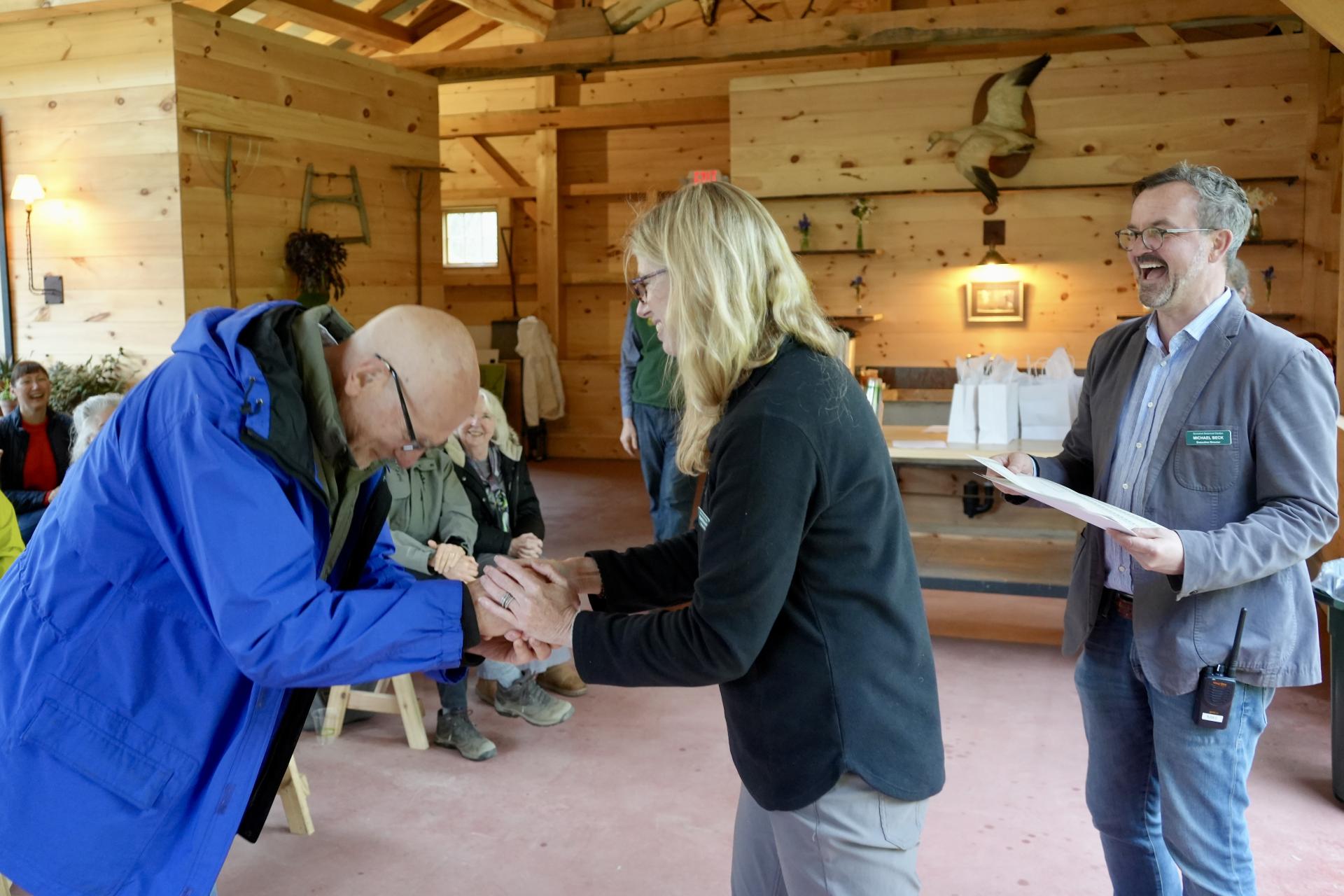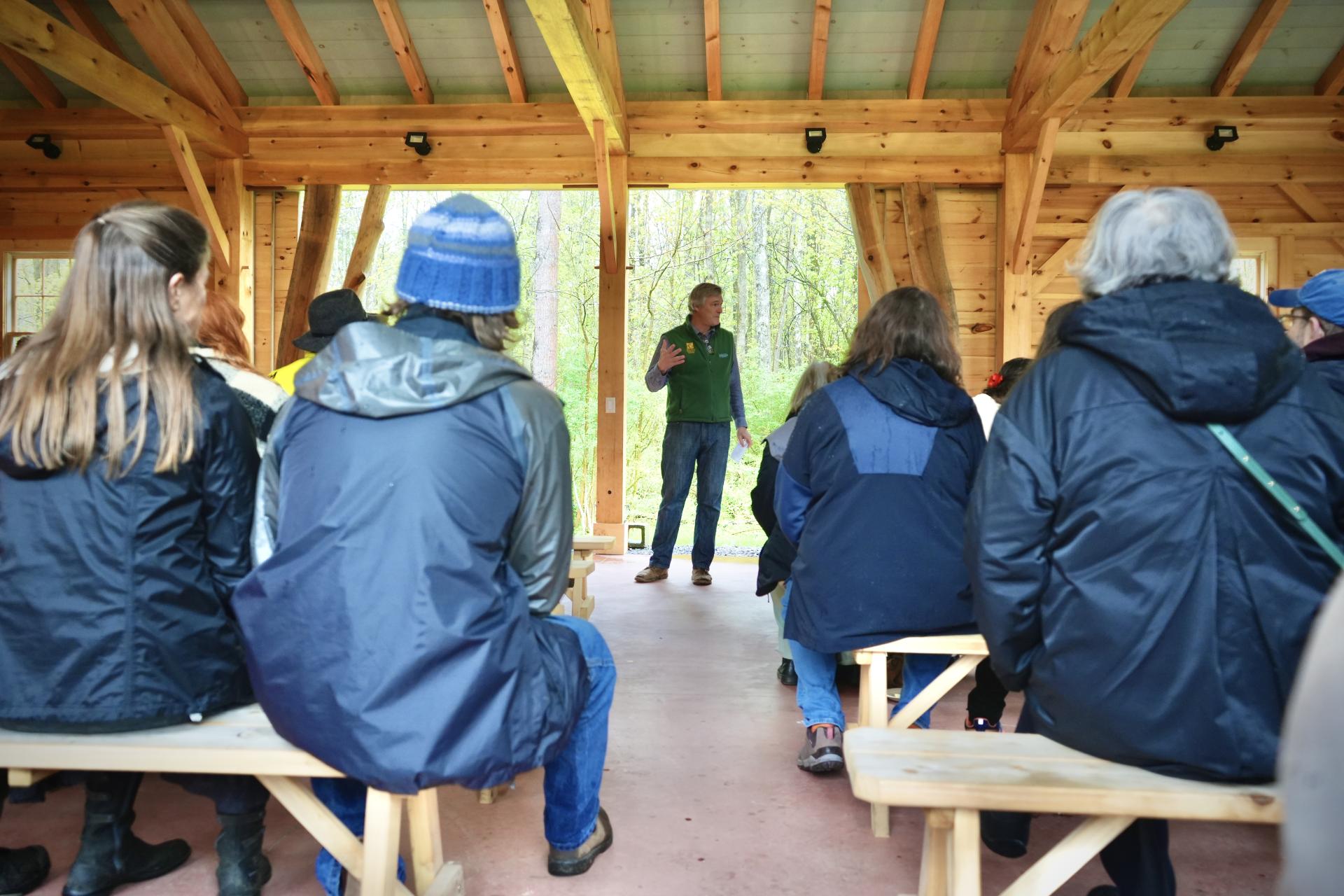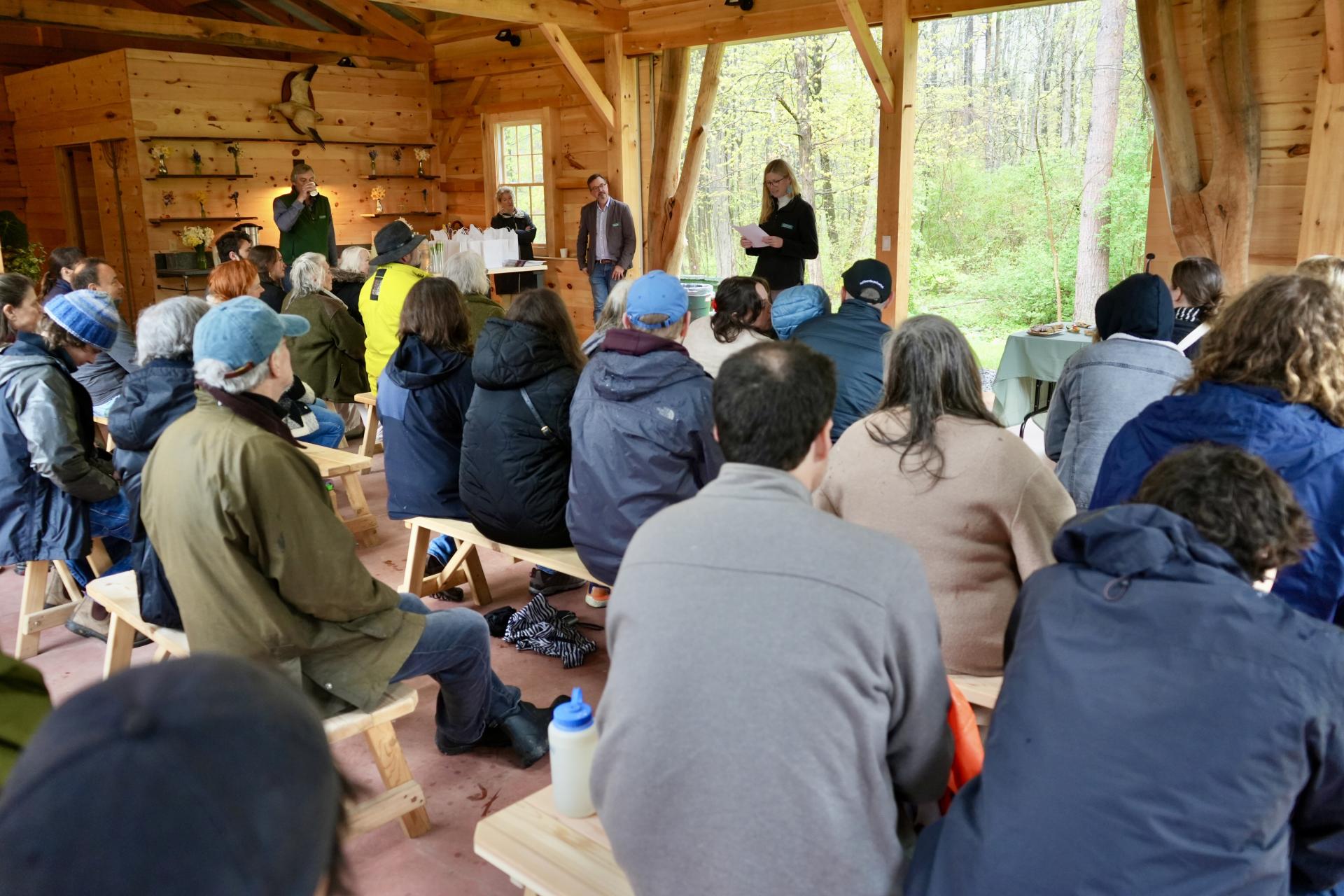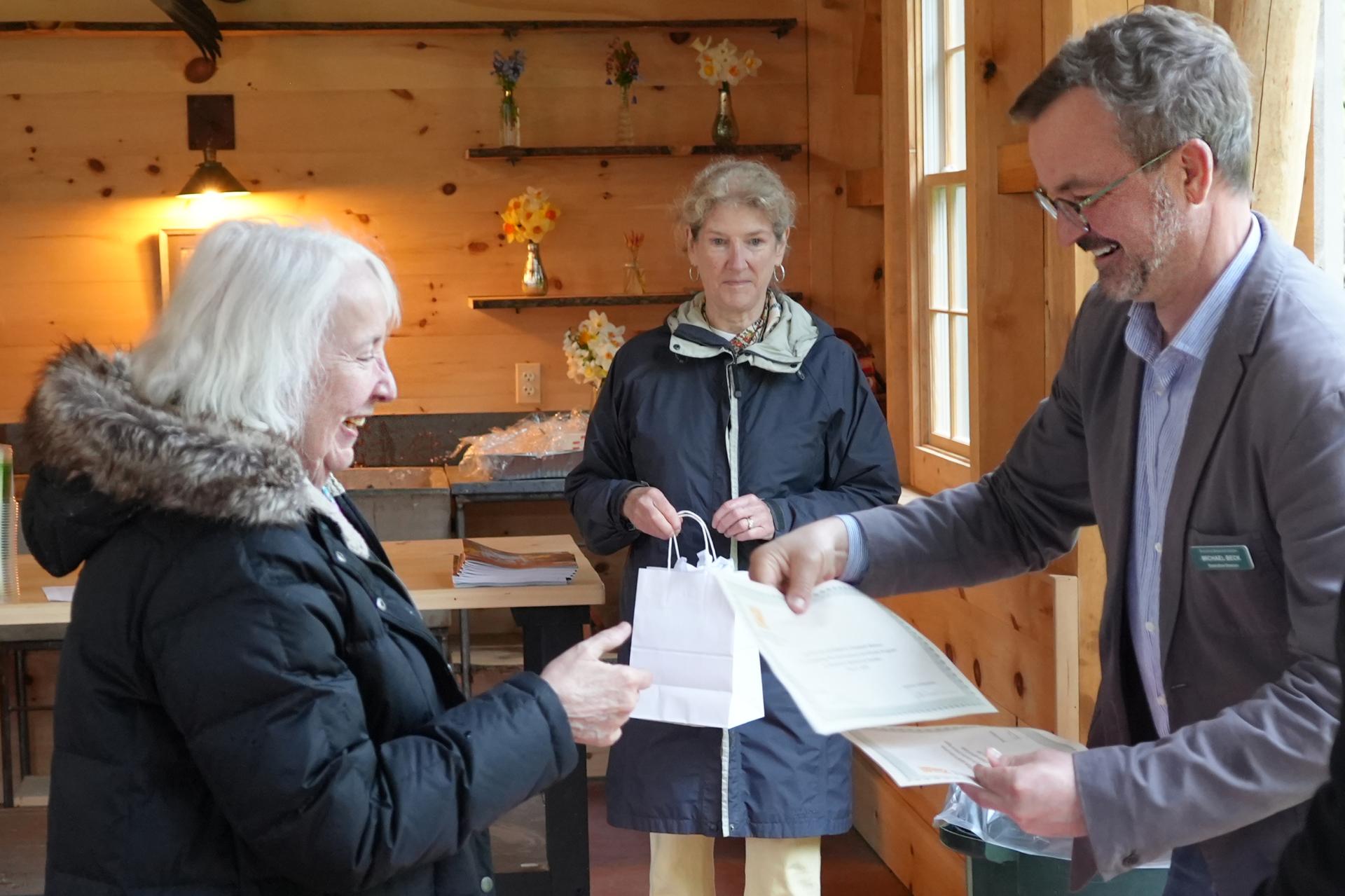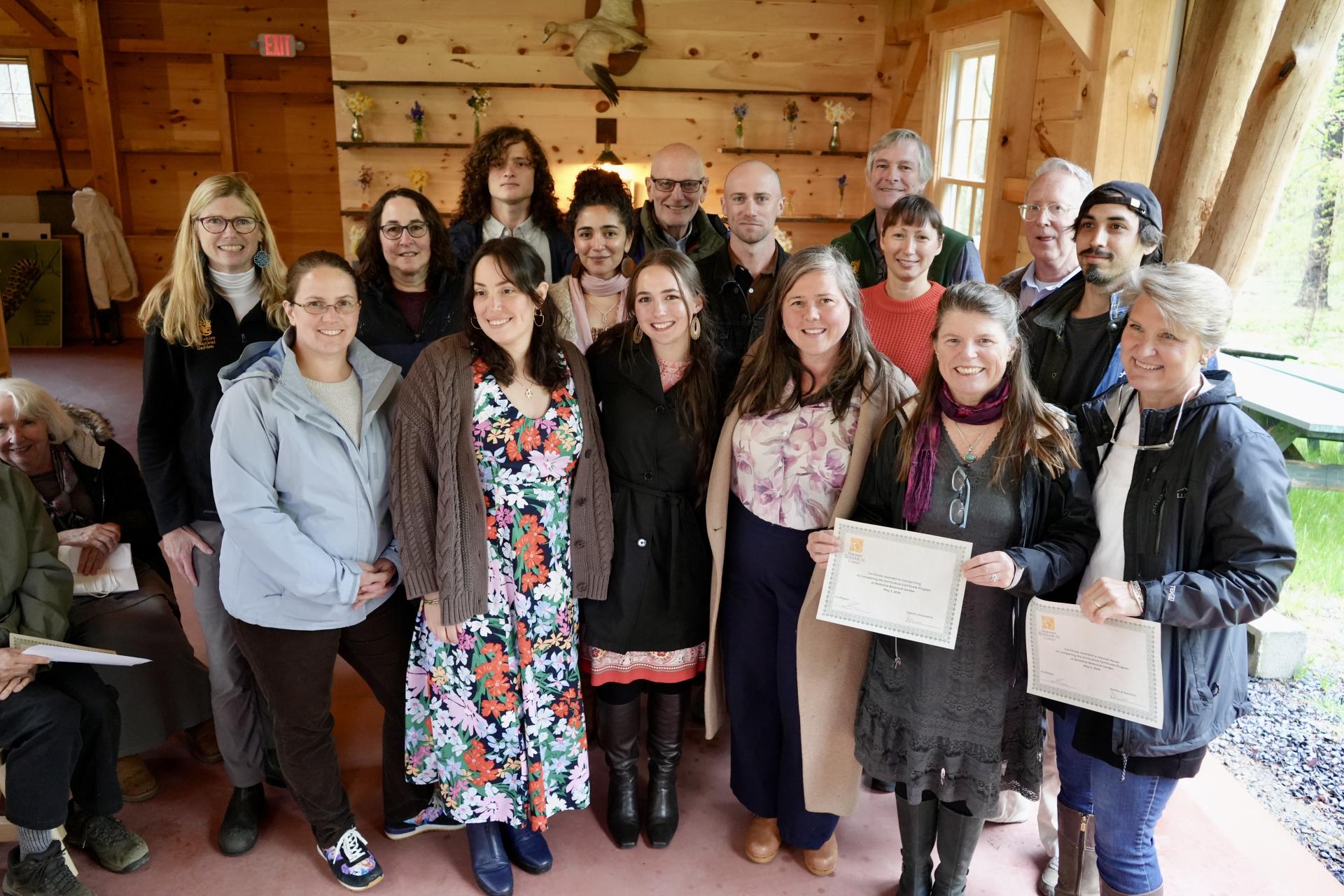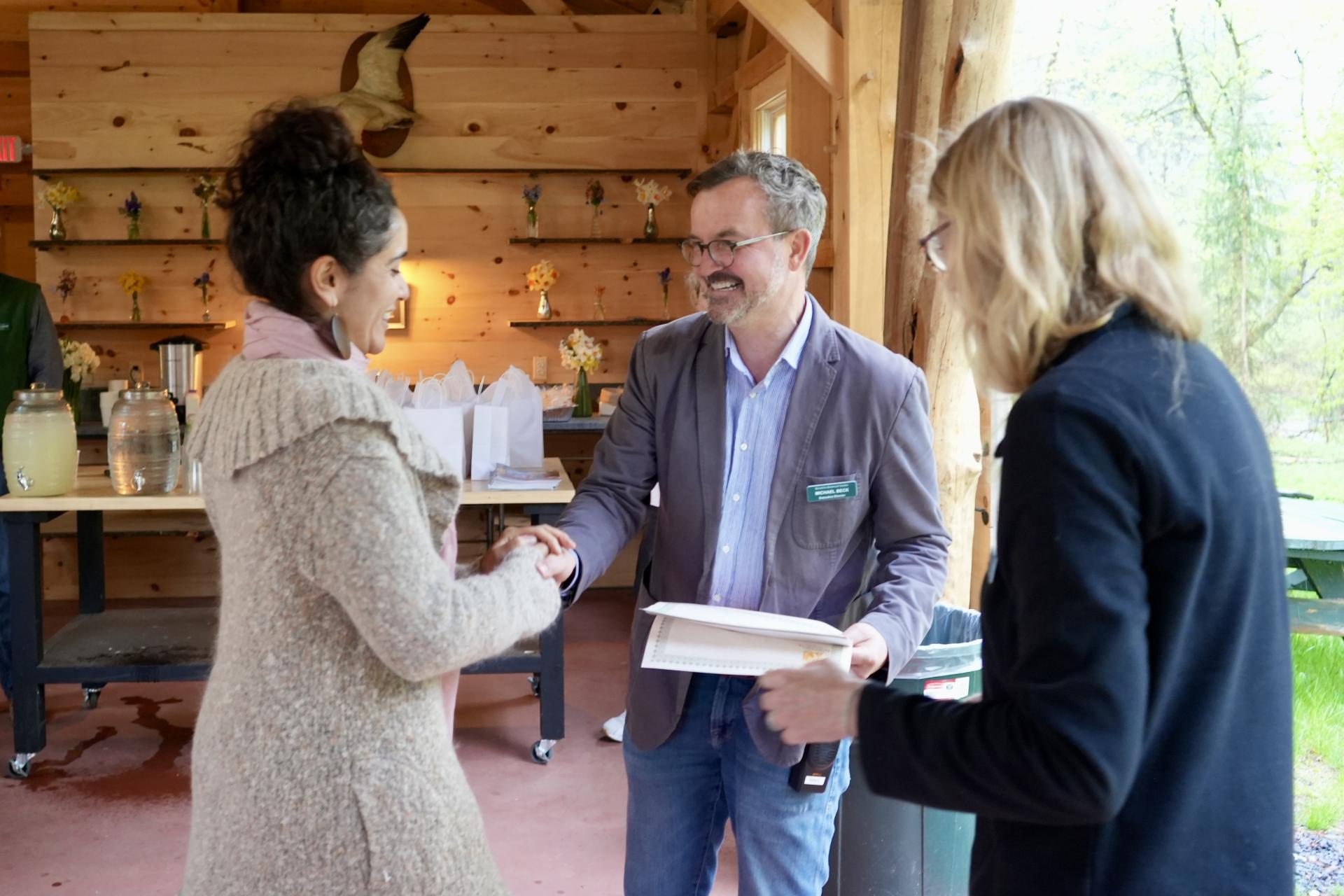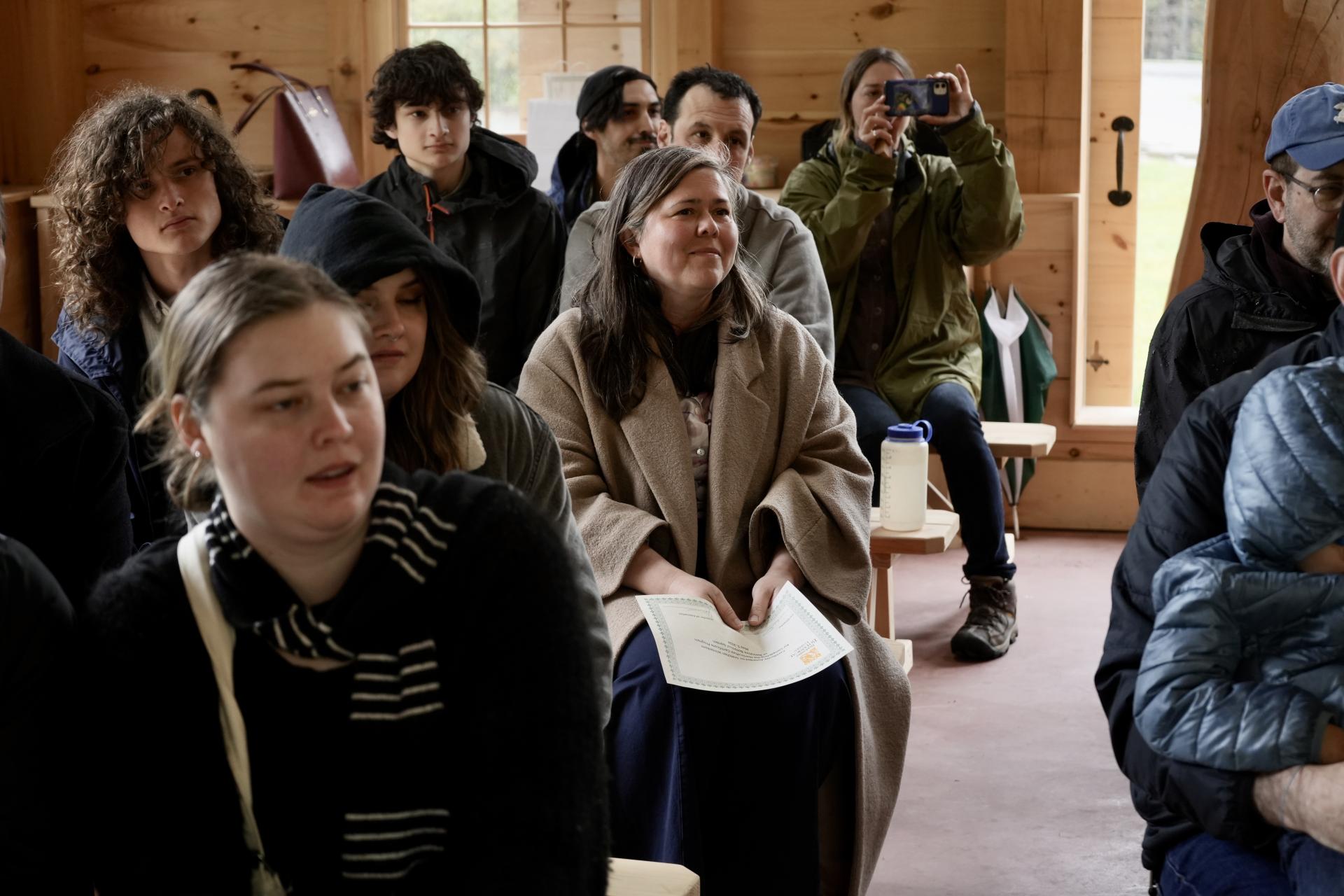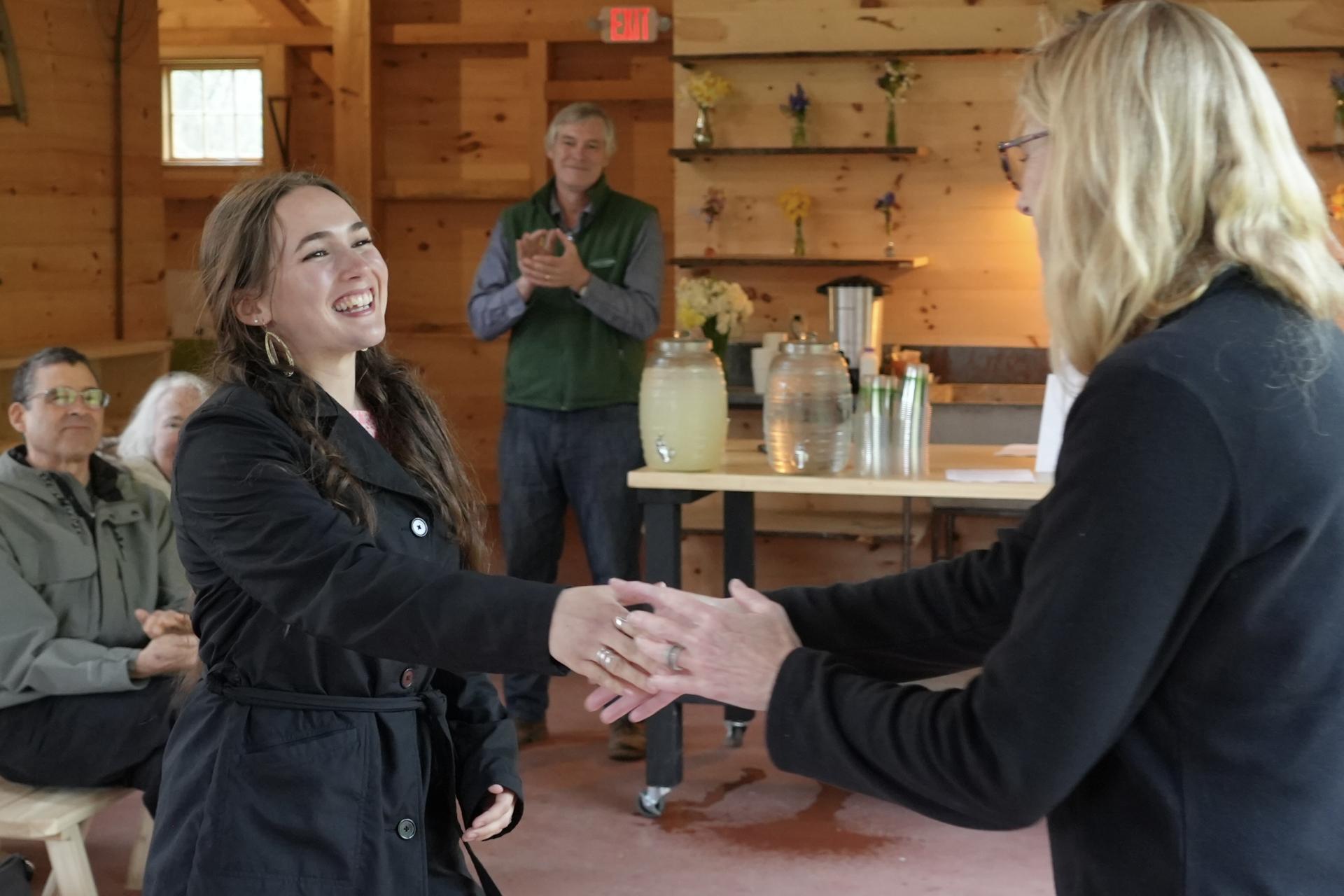You are here
17 Students Graduate from BBG's Horticulture Certificate Program
17 Students Graduate from BBG's Horticulture Certificate Program
On this, the 90th anniversary of the founding of Berkshire Botanical Garden, we have another historic achievement to announce: Seventeen people have graduated from our Horticulture Certificate Program.
That’s the largest graduating class that anyone here can recall.
“You should all be so proud of yourselves,” Jennifer Patton, BBG’s director of education, told the graduates at a ceremony on Sunday at BBG. Noting that the horticulture class of 2023/2024 is the first since she took over as the director of education, Patton said, “You will always be my first class to graduate. Hopefully, each year will be as full of comradery and engagement as this year’s class was. But I think I got really lucky to have you as my first.”
The Horticulture Certificate Program, a non-credit, adult enrichment program designed for the professional, aspiring professional or serious home gardener, includes deep dives into topics such as herbaceous and woody plants, soil science, plant health care, plant propagation, sustainable garden care and maintenance, and landscape design.
Certificate requirements include 90 hours of classroom work plus 15 practicum hours.
Coming from many backgrounds and an age range expanding from teens to retirees, the class of 2023/2024 graduates are: Britney Danials (environmental scientist), Carolyn Guenther King (master gardener), Christian Branley (gardener/landscaper), Fred Perkins (rocket scientist), Hannah Moran (garden hobbyist), Julie Levy (garden hobbyist), Marina Bayeva (physician), Matthew Acciani (works for a garden designer), Paul Madore (garden hobbyist), Pia Whyte (works for a garden designer), Sam Trelawny-Cassity (high school student), Thaddeus Thompson (BBG staff), Victoria Martins (green energy employee), Gretchen Winterkorn (garden hobbyist), Marla Tolz (an artist, gardener and small business owner), Noah LaPointe (garden hobbyist), Elisabeth Bellows (garden hobbyist).
In a speech to his fellow graduates, Thompson, BBG’s co-executive director, said:
Gardening is a form of activism. It challenges the dominant paradigm of our fast-paced, commercially driven, technologically mediated world. The act of gardening is itself an advocacy for a more harmonious relationship between humans and the rest of the natural world. By tending to our gardens (or the gardens of others, as the case may be), we are reclaiming our place as stewards of the earth and guardians of its beauty.
Gardening is not merely a pastime; it's a revolutionary act. In a time when our planet is facing unprecedented ecological and social challenges, when it is in such a state of unrest, gardening offers a counter-cultural path towards healing and regeneration. It creates havens for biodiversity. It centers us, it calms the soul. It brings us together. In a world that can be unkind, it is a purposeful act of kindness — to ourselves, to our communities and to nature.
Wendell Berry, in “A Continuous Harmony: Essays Cultural and Agricultural,” wrote that “A person who undertakes to grow a garden … has set his mind decisively against what is wrong with us. He is helping himself in a way that dignifies him and that is rich in meaning and pleasure. But he is doing something else that is more important. He is making vital contact with the soil and the weather on which his life depends. He will no longer look upon the rain as a traffic impediment or the sun as a holiday decoration. And his sense of humanity’s dependence on the world will have grown precise enough, one would hope, to be politically clarifying and useful.”
Here’s the profound truth: Gardening has the power to change the world. In the midst of everything that is going on around us, everything that sweeps us up, everything that is worrisome or disturbing (and I’m not talking about the gnarly garden pests we all learned about in sustainable plant care), it's easy to overlook the transformative potential of tending to the earth. As we immerse ourselves in the rhythms of nature, we discover a profound connection that transcends the boundaries of our individual lives.
So let us embrace the power of horticulture to change the world. Let us dig our hands into the soil and cultivate a deeper appreciation for the wonders of nature. As you go forth from here, I hope that what you learned in this program touched you in some way, gave you inspiration — and confidence — to effect change. It did for me. I hope it did for you, too. Congratulations to all of you. And thanks to Jen!
The next Horticulture Certificate Program series begins in September. Registration will open on July 1. Learn more about it. If you have questions, reach out to Jennifer Patton at jpatton@berkshirebotanical.org.
Help Our Garden Grow!
Your donation helps us to educate and inspire visitors of all ages on the art and science of gardening and the preservation of our environment.
All Donations are 100% tax deductible.

